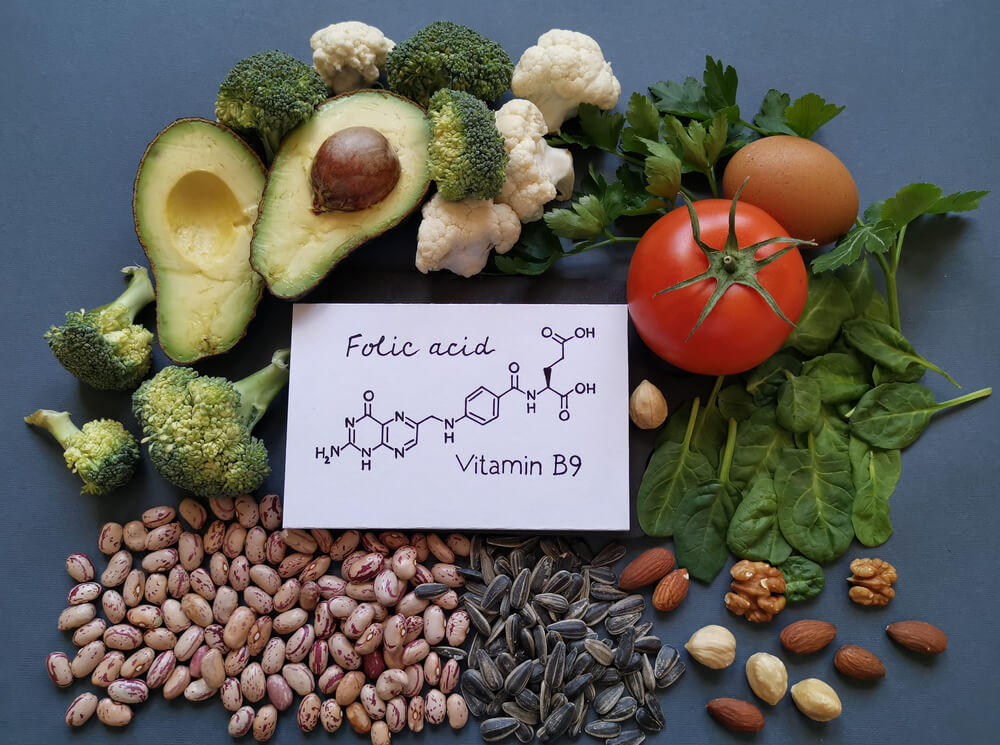The distinction between folic acid and methylfolate is a topic of significant importance to understanding the difference between an ok vitamin, and a great vitamin. Yet this topic remains a source of confusion for many. Both are forms of vitamin B9, essential for numerous bodily functions, including DNA synthesis, repair, and methylation. However, their differences lie in their biological activity, absorption, and effects on overall physical performance. This blog aims to provide a clear, authoritative exploration of folic acid and methylfolate, shedding light on their unique characteristics and implications for health.
What is Folic Acid?
Folic acid is the synthetic form of vitamin B9 (man-made chemical), used in dietary supplements and fortified foods. Introduced into the food supply in the late 1990s as a public health measure to reduce the incidence of neural tube defects in newborns, folic acid has become ubiquitous in processed foods like bread, cereals, and pasta. While effective in preventing vitamin B9 deficiency at a population level, folic acid's synthetic nature means it requires conversion into its active form, tetrahydrofolate (THF), through a series of biochemical reactions in the body.
This process is not only inefficient, it may not work at all for some people.
What is Methylfolate?
Methylfolate, or 5-methyltetrahydrofolate (5-MTHF), is the naturally occurring, bioactive form of vitamin B9 found in leafy green vegetables, legumes, and fruits. It represents the form of folate that is 'ready-to-use' by the body's cells, bypassing the complex conversion process needed with folic acid. Methylfolate plays a crucial role in the methylation process, a critical biochemical pathway involved in gene expression, detoxification, and neurotransmitter synthesis.
Get Methylfolate and Active B12 in our Methylated Multivitamin Formula.
Key Differences Between Folic Acid and Methylfolate
-
Bioavailability and Absorption: Methylfolate is more readily absorbed and utilized by the body compared to folic acid. Folic acid must be converted to its active form, 5-MTHF, through several enzymatic reactions, a process which can be inefficient in some individuals due to genetic variations in the MTHFR gene.
-
Genetic Considerations: Approximately 25-40% of the population carries a variant of the MTHFR gene, which can significantly impair the conversion of folic acid into its usable form, leading to unmetabolized folic acid in the bloodstream. Methylfolate, being already in its active form, does not require this conversion, making it a superior option for those with MTHFR mutations.
-
Health Implications: Elevated levels of unmetabolized folic acid have been associated with potential health issues, including masked vitamin B12 deficiency, among other issues we can not mention on our blog. Methylfolate, on the other hand, has been shown to support mood regulation, cardiovascular health, and fetal development.
-
Application in Supplementation: Given its direct usability by the body, methylfolate is considered a more effective supplement, particularly for pregnant women, individuals with MTHFR gene variants, and those seeking to support mood, energy, metabolism, and cardiovascular health.
Making the Right Choice for Your Health
When choosing between folic acid and methylfolate (the choice is easy), consider your individual health needs, genetic background, and dietary habits. For those with MTHFR mutations or looking to optimize folate intake through supplementation, methylfolate represents a more efficient and effective option.
In conclusion, while both folic acid and methylfolate serve the essential purpose of providing the body with vitamin B9, their differences highlight the importance of personalized nutrition and the need for awareness about how genetic factors can influence nutrient utilization. By making informed choices about supplementation and diet, individuals can ensure they are meeting their health and performance goals.





